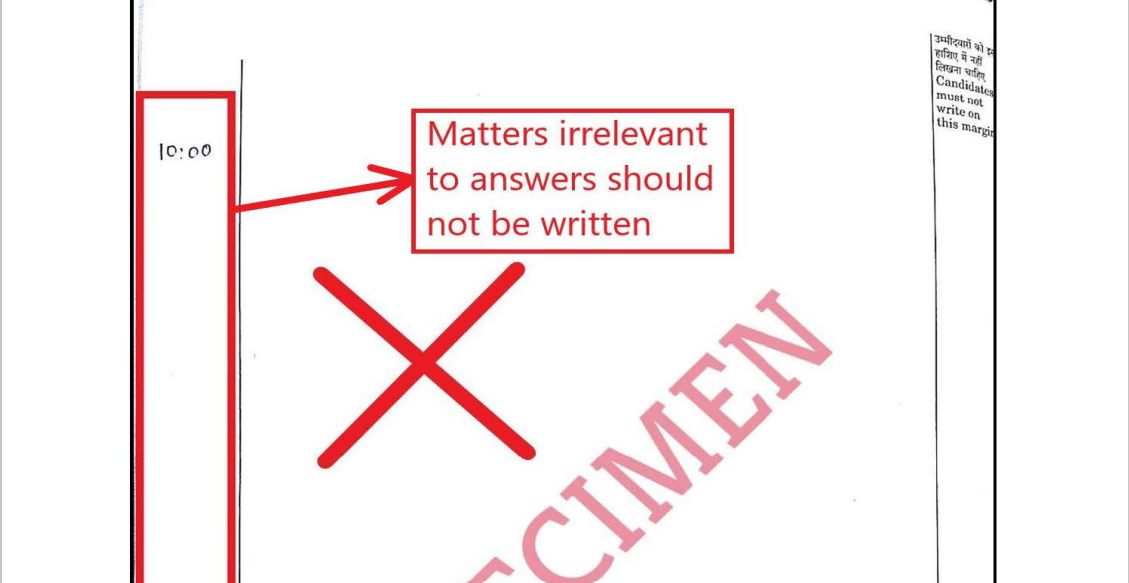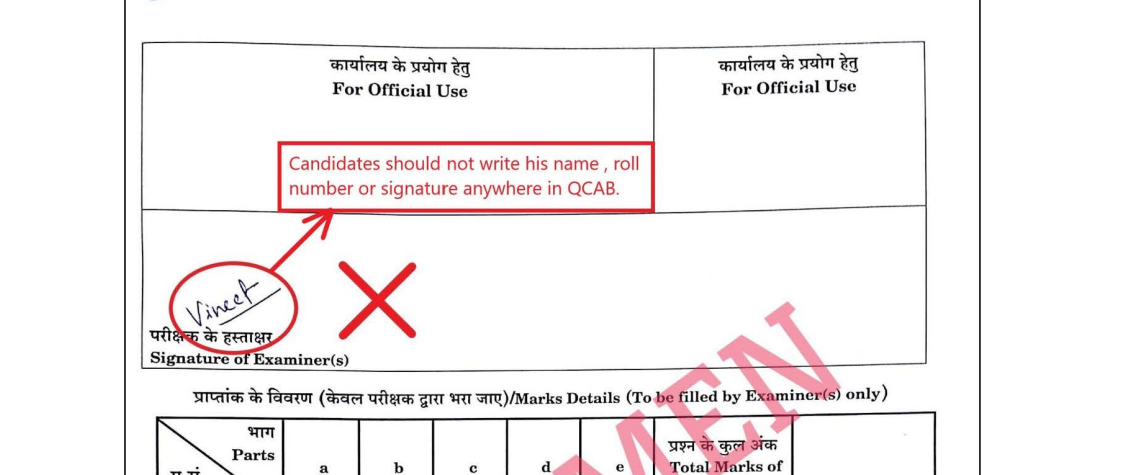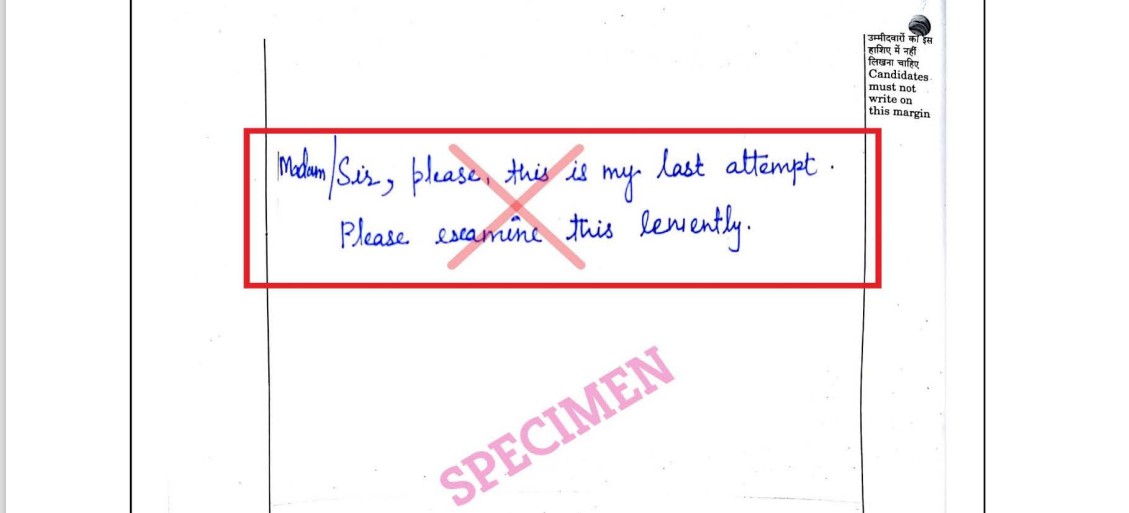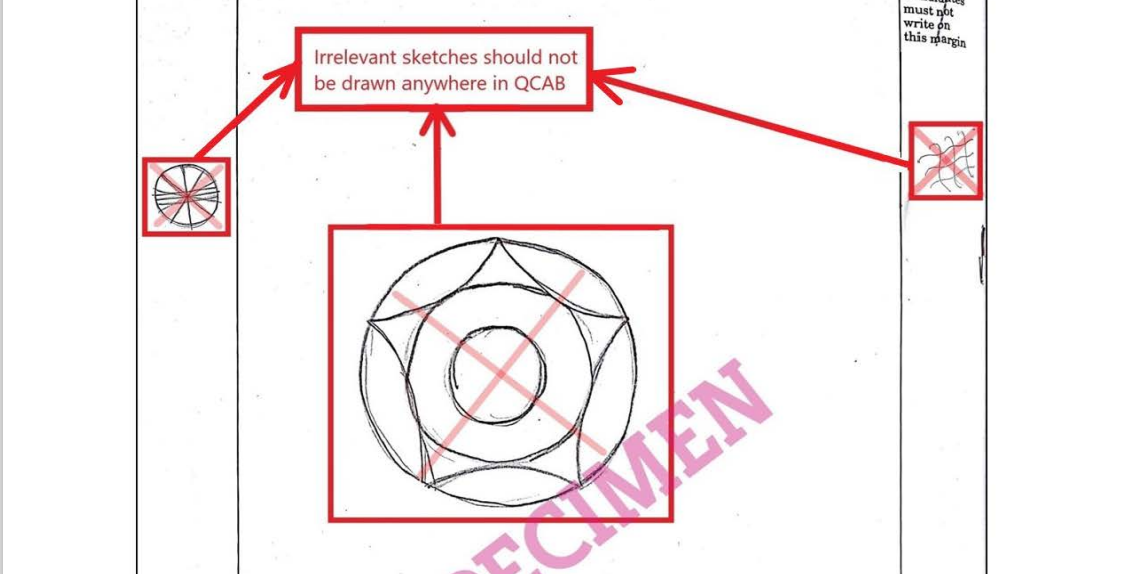Common mistakes to avoid in IAS exam
Common mistakes to avoid in IAS exam- The UPSC has released a document detailing the common mistakes by Civil Services aspirants. This list of the mistakes of IAS aspirants is downloadable in the form of a PDF on the official website - upsc.gov.in. The IAS exam is widely known as one of the most competitive exams in this country. Every year, lakhs of candidates prepare tirelessly to be one of the few who have successfully cleared the Civil Services Exam. Sadly a few candidates who may have made the cut failed to do so because of some easily avoidable errors.

Additionally, we also discuss the correct way to fill out the IAS mains answer sheet and also some common mistakes to avoid in UPSC preparation for the benefit of IAS aspirants. Candidates are encouraged to go through the following list of IAS 2024 exam mistakes and the correct way to answer the papers in order to avoid rejection due to avoidable mistakes.
IAS 2024 Exam - Important Dates
Events | Dates |
UPSC IAS 2024 Notification release | February 14, 2024 |
Last day of IAS exam Registration | March 05, 2024 |
IAS 2024 Prelims exam | May 26, 2024 |
UPSC CSE 2024 Mains exam | September 20, 2024 |
Some Commonly Made Mistakes of UPSC Aspirants
The UPSC has released a list of common mistakes by aspirants while attempting the Mains paper on their website. The list of UPSC IAS mistakes is as follows.
Common mistakes to avoid in CSE exam: Writing Irrelevant things on the Question cum Answer Booklet
Oftentimes, candidates tend to mark the paper with names, numbers, slogans and other kinds of markings for a variety of reasons. Candidates must only write on the paper as prompted by the instructions and avoid leaving any kind of irrelevant marking on the sheets.
Writing Irrelevant matters on the Answer sheet

Common mistakes to avoid in IAS exam: Disclosing identifying information
Candidates must never reveal any information that may disclose their identity on the UPSC IAS mains paper. This includes information like the candidate’s name, roll number and signature. Even in tasks like letter writing, candidates must take care not to reveal their names or signatures while answering.
Writing Identifying Information on the Answer Sheet

Common mistakes to avoid in CSE exam: Answering in multiple languages
Candidates must only answer the IAS main exam in the language that is indicated. Candidates who wish to attempt the IAS exam in their regional language must opt for that option during the application process, and even then, not mix languages in the mains paper.
Common mistakes to avoid in IAS exam: Answering in both pen and pencil
Candidates must either write the answer in pen or in pencil. Candidates are not permitted to use both pen and pencil within the same answer.
Quick Links
- IAS Preparation Tips 2024
- IAS Preparation 2024
- IAS Exam Analysis 2024
- IAS Exam Pattern 2024
- IAS Preparation without Coaching 2024
- IAS Syllabus 2024
Common mistakes to avoid in CSE exam: Making appeals to the examiner
Some candidates choose to appeal to the examiner with the intention of getting some leniency in correction. This is often done through notes pleading with the examiner to correct leniently and sometimes offering a reason, such as this being the candidate’s last attempt. Candidates should avoid this at all costs as this behaviour is not viewed favourably by examiners at all.
Making appeals to the examiner

Common mistakes to avoid in IAS exam: Illegible writing
Candidates must take great care to present their UPSC IAS answer sheets neatly with good handwriting so that the answers are easily readable. Answers written illegibly always run the risk of being rejected. Even if an answer is right, if the examiner cannot read it, they cannot mark it as correct.
Common mistakes to avoid in the Civil Services exam: Not following instructions
It is, without exception, imperative for candidates to attempt the IAS mains exactly as prompted in the question paper. Candidates must write answers only in the space allotted for the same and must not write or draw anything in areas where it is indicated not to make any marks.
Common mistakes to avoid in IAS exam: Doodling and Sketching on the Paper
Candidates must not, under any circumstances, doodle or make irrelevant sketches on the answer sheet. Making unnecessary doodles and sketches on the answer sheet breaks the rule stating not to write irrelevant things on the answer sheet. It also has the added disadvantage of ruining the presentation of your paper. Candidates must only write what is asked of them to write on the answer sheet.
Making Irrelevant Sketches on the Answer Sheet

How to Correctly Write on the IAS Mains Answer Sheet
Now that we have gone over some of the mistakes of UPSC aspirants, in this section, we will discuss the correct way to write on the answer paper. Firstly, candidates must only Write the required information on their answer sheet, both in the portion where they must fill out the details and the answers. In case candidates want to mark an answer wrong, they must take care not to scribble, but instead neatly strike it out and write cancelled over it.
Quick Links
- IAS Selection Process 2024
- IAS Exam Dates 2024
- IAS Career Guidance 2024
- IAS Application Form 2024
- IAS Eligibility Criteria 2024
- IAS Salary 2024
Common Mistakes in UPSC Preparation
Until now, we have mostly looked into writing on the answer sheet, but it is also good practice to go over some of the mistakes in IAS preparation. Candidates can go over the following UPSC preparation mistakes and avoid making them.
Common mistakes to avoid in IAS exam: Not going over the syllabus
Candidates should take care to go over the IAS syllabus 2024 thoroughly. The syllabus must influence candidates’ IAS Study plans so that they avoid spending too much time with some subjects while neglecting others, or otherwise studying irrelevant topics. It is always in the candidate's best interest to have a thorough understanding of the IAS Syllabus.
Common mistakes to avoid in CSE exam: Buying and referring to too many books
There is a vast amount of study material available to students these days. Too many books will inevitably lead to confusion and some books may contain conflicting information. To curb this, first, be thorough with the materials in NCERT books.
NCERT books are both valuable in preparation with the added advantage of being freely available online. Next, there are many curations available for the best IAS books available for preparation candidates can refer to.
Quick Links
Common mistakes to avoid in IAS exam: Not Practicing Writing Answers
An extremely easy UPSC preparation mistake to fall into is only reading the material and not spending enough time practising written expression. Not practising writing answers makes it tough for candidates to manage their time in the actual exam, and may cause the quality of the answers to be sub-optimal.
Candidates must take care to practice the topics that they have revised by attempting past UPSC IAS Question papers. Candidates must be mindful of the above mistakes and take care not to repeat them in order to increase their chances of success at the highly competitive UPSC IAS exam.
Frequently Asked Questions (FAQs)
The maximum number of attempts allowed for the IAS exam varies across categories.
It is important for candidates attempting the UPSC to study what is in the syllabus. Don’t read irrelevant topics not specified in the UPSC Syllabus.
UPSC aspirants make many different kinds of mistakes such as writing illegibly or doodling on the paper. You can go over the official list of common UPSC errors to get a better idea.
Candidates are allowed to attempt the IAS exam multiple times, so it is okay if you do not clear it the first time.
Yes, bad writing that is illegible runs the risk of getting your answer rejected if it is not readable.
You can avoid making mistakes in the UPSC exam by going over the commonly made mistakes of UPSC aspirants and taking care not to repeat them.
Questions related to UPSC CSE
On Question asked by student community
Hello,
After Class 10, it will take 2 years to complete Class 11 and 12, followed by 3 years of graduation, which is the minimum requirement for UPSC.
UPSC preparation and clearing the exam may take 1–2 years. After selection, IAS training takes about 2 years. Overall, it takes around
Hello Aspirant
As your question is not clear, you are asking how to become an IAS, which course or degree you should pursue, and all the related details regarding the IAS. So, I can suggest you choosing the right stream in Intermediate is important.
The Arts/Humanities stream is most helpful
Hello Aspirant
All colleges are the best, and selection mainly depends on you and your consistency. But I can help you regarding this :
After the 10th, you can join PU (11–12th) colleges that offer strong academics and an early IAS foundation.
Some good options are Delhi’s Rajendra Prasad Sarvodaya
Hello
If you want to become an IAS officer, you can choose any group CEC, MPC, or BiPC as IAS does not require a specific subject stream.
However, many students prefer CEC (Commerce, Economics, Civics) or MPC (Maths, Physics, Chemistry) because they help build analytical and general knowledge skills useful
Hello, it’s wonderful to see such clarity at such a young age. Becoming an IAS officer requires consistent preparation, strong general knowledge, and excellent analytical skills. Right now, your main focus should be building a strong base in academics, especially in subjects like History, Geography, and Economics. Start reading NCERT
Applications for Admissions are open.
Apply for Online M.Com from Manipal University
